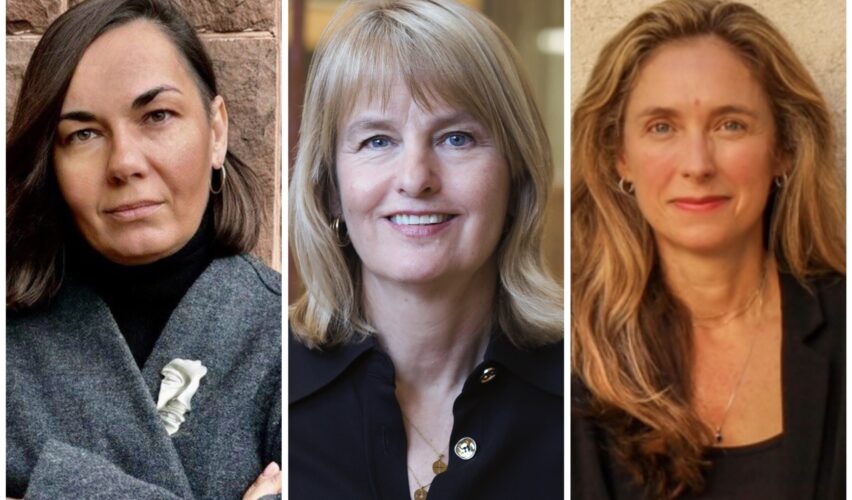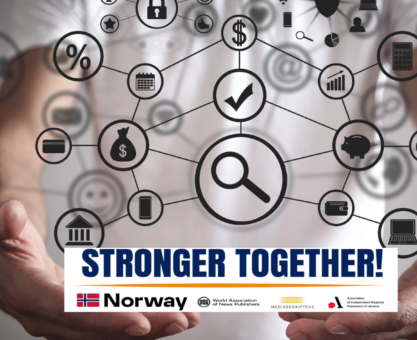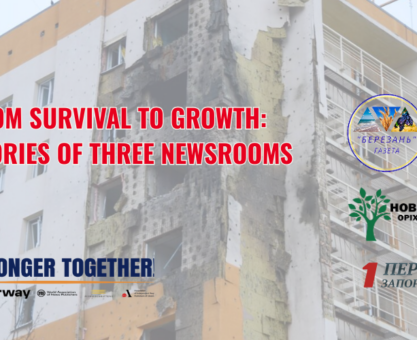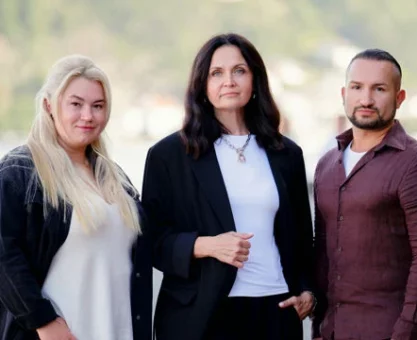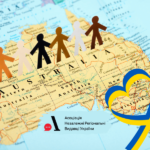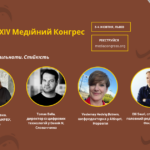In March, the Stronger Together: Media and Democracy Programme was launched — a three-year initiative to support independent Ukrainian regional media, jointly implemented by The World Association of News Publishers (WAN-IFRA) in partnership with the Association of Independent Regional Press Publishers of Ukraine (AIRPPU) and Mediebedriftenes Landsforening (MBL) with the support of Norway. The budget amounts to 70 million NOK, and the initiative covers 40 media outlets across the country.
As we previously announced, we decided to focus on three core areas:
- Financial and organizational resilience (grants and business model training);
- Transparency and investigative journalism (mentorship and support for newsroom teams);
- Gender equality and inclusivity (leadership development and the Women in News program).
Read more: Stronger Together: A Major Support Programme for Ukraine’s Independent Regional Media Launches
The selected media teams have already begun training within their focus areas. In July, the first exchange trip to Norway took place: 16 Ukrainian journalists and editors visited Arendalsuka, the country’s largest democratic event. It marked the beginning of a live dialogue between Ukrainian and Norwegian journalists — a sharing of ideas and practices to make the media stronger.
During this trip, we prepared an interview with our international project partners — Randi Øgrey, CEO of Mediebedriftenes Landsforening (MBL), and Melanie Walker, Media Development Executive Director, WAN-IFRA — on how the idea for the program was born and why it is so important right now.
We present the text below in a Q&A format.
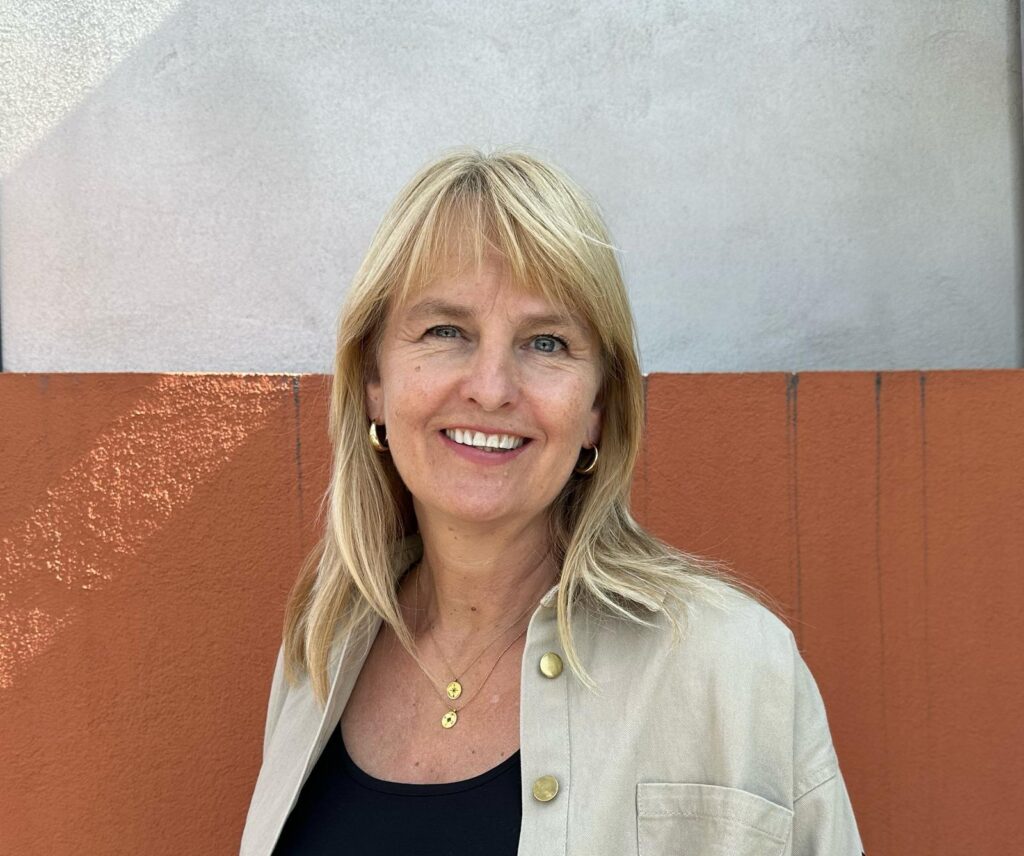
— Let’s start with how the idea for Stronger Together: Media and Democracy Programme came about. Why did you decide to join forces to strengthen independent journalism in Ukraine?
Randi Øgrey: When Russia launched its full-scale invasion of Ukraine, we — as partners — wanted to do something, because we could not just accept the situation. We knew that Ukrainian independent media had lost funding, and advertising had disappeared. So first, we created the Ukrainian Media Fund (UMF) to provide newsrooms with equipment, safety tools, and financial assistance — to help them stay resilient and able to keep working during the war.
For three years now, we have been actively working with Ukrainian media, and you have been truly impressive in this cooperation. What the media really need today is for independent journalists to be stronger together. That is where the name came from — because we learn from each other.
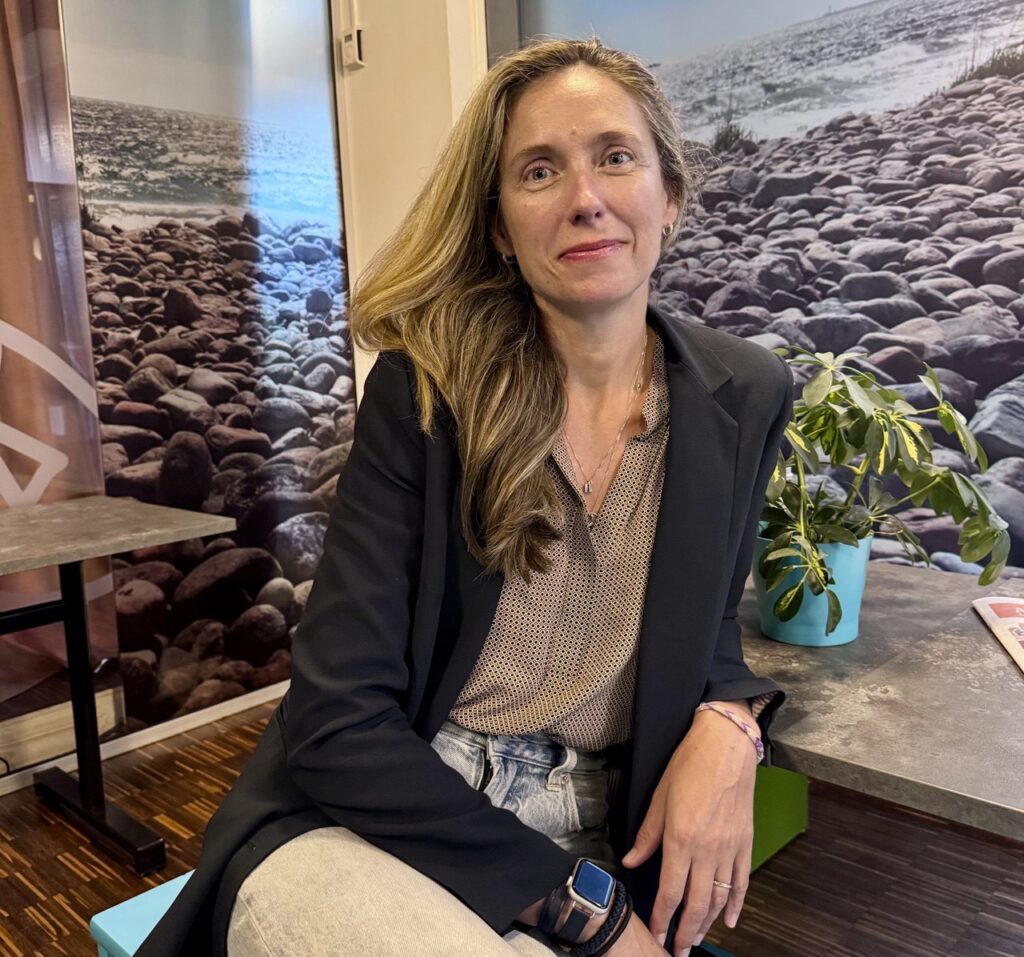
— In your view, why is the partnership between these three organizations — WAN-IFRA, MBL, and the Association of Independent Regional Press Publishers of Ukraine (AIRPPU) — so crucial for this project?
Melanie Walker: It matters that these three organizations came together, because we are the representatives of the media industry in our respective countries. And as far as I know, this is the first time industry associations have united to work on a joint cross-border proposal aimed at attracting state funding.
It also demonstrates solidarity and the power of cooperation to achieve a shared goal. We spent more than two years working to build this program — from the initial idea to its implementation. We wanted to do much to strengthen capacity, plan for the future after the war, and prepare Ukraine’s independent media for post-war recovery.
At the time, we could not have imagined the war would still be ongoing. But the idea — to create something that could directly support independent media, prepare them, develop their competencies, and build solidarity networks — was born from this vision. Each of our organizations represents its members, and we believe in the power of networks and collaboration.
The successful attraction of substantial funding — the first time such a large sum through the Nansen program has been directed at supporting independent media under a civil society development initiative — shows the results that can be achieved when you unite efforts for a common goal.
Randi Øgrey: First of all, these are three very good partners. We already had positive experiences working together, so when we decided to create a consortium and apply for funding through the Nansen program, it was natural that this consortium would bring together a local and regional organization.
I, Oksana Brovko, and Melanie Walker have been collaborating for a long time. They are both very professional and dedicated. Together we lobbied for this direction, so it was logical to join forces. And we succeeded: we received funding to make the idea a reality.
— How do you see the model of independent journalism today in terms of strengthening democracy in Ukraine and globally?
Randi Øgrey: I believe that in wartime, the first thing lost is truth. Truth is the first casualty of war — given the sheer amount of disinformation channels. That’s why it is so important not just to have local journalists, but living, active, and truly strong local journalists in Ukraine.
I was in Lviv at the Media Congress organized by the Association of Independent Regional Press Publishers of Ukraine, and I was impressed. 120 people, and all so professional. For us, it is vital to be sure that you are strong and able to play this extraordinary role in society: to tell the truth, to represent it, and at the same time to engage in investigative journalism.
I also hope we can help Ukrainian media develop more digital business models.
Melanie Walker: Worldwide, we see declining trust, the spread of disinformation, growing polarization, and also the phenomenon of news avoidance. These are catastrophic factors that can erode democracy.
What’s happening in the U.S. is a perfect example of how democracy can erode step by step: the media can come under threat. And when this threat comes from the state, it is even more insidious than when the media operate in a war environment, at risk but not attacked by the very government they serve, and the audiences they serve.
The situation in Ukraine is extreme: nearly four years of war and direct threats to physical infrastructure. But the will and strength of independent media can serve as an example for others globally, showing how fragile democracy is, and the crucial role independent newsrooms play in maintaining it.
If we lack independent media that ask questions, inform the public, and create opportunities for debate — and if society no longer trusts media — then we see the collapse of democratic institutions. That is why it is essential to invest in the capacity of Ukrainian media across the country to inform, to provide platforms for dialogue, and to serve their communities.
— We’ve talked a lot about Ukrainian journalists. How would you describe the profile of an independent journalist in Ukraine?
Melanie Walker: I’m struck by how many women are in Ukraine’s media industry. Whether it is because many men went to the front or because of internal changes in the country, it is remarkable to see so many strong, committed editors and managers together in one room.
This also opens the door to new opportunities, because women are more inclined toward collaboration, less competitive, and more open. That trait can be a powerful asset for strengthening the media industry.
I’m also impressed by the curiosity and determination of journalists and editors working without regular salaries, without proper safety, without equipment, and yet still doing their jobs — because they know their communities depend on it. I deeply respect those practicing journalism in Ukraine today, especially in occupied territories or small communities outside big cities, where the challenges are even greater.
Randi Øgrey: Independent journalism in Ukraine is quality journalism — it is ahead of the curve. It covers not only the war (though of course that too), but what especially impressed me is that you are trying to create what I call constructive journalism.
You are very professional, you create stories that give people hope. And I think that is crucial. Also, you are now further developing investigative journalism, and that matters too.
You are very close to your society. In wartime, local journalists play an essential role — giving people information about where there is water, power, and where it is safe. But it is also important to provide constructive content and positive stories, because society needs both in such difficult times.
— Why did you combine three aspects in Stronger Together: Media and Democracy Programme — financial and organizational sustainability, transparency and anti-corruption, gender equality and inclusion?
Melanie Walker: It is critically important, when talking about sustainability, to break down the factors that shape it. We know: for the media to grow, strong business models are needed. Otherwise, you remain vulnerable to state or other influence. You must monetize your product.
It’s also necessary to build trust and ensure content is flawless, especially amid rising disinformation. Audiences must trust content. If the media make mistakes, they must acknowledge and correct them publicly. That’s why we also focus on the editorial side.
It is important to develop investigative journalism, because in wartime, with the influx of funds and lack of transparency, media must be able to tackle important topics — big and small. This is vital for the communities they serve.
The third element is gender equality. WAN-IFRA has a long history working on this issue. Even though many women run newsrooms, there is still an imbalance in coverage. War reporting often amplifies male voices. Many women are forced to take on new leadership roles without preparation, because others went to the front. So it is necessary to strengthen these networks and skills.
I would even add a fourth element — mentorship and networking, both within Ukraine and internationally. And here Norway’s support is key: this country demonstrates the strongest solidarity with Ukraine, which we made sure to include as a crucial component.
— Do you think gender shifts are similar in Ukrainian and Norwegian, or broader European, media environments?
Melanie Walker: It’s hard to say specifically, because each country has its own features. But when it comes to bias, violence, online harassment, stereotypes, or the number of women as experts or story protagonists, we can compare across countries and even globally.
Studies show women are significantly underrepresented in leadership and in content. Usually, only one in four media quotes comes from a woman. We haven’t yet done a systematic content analysis in Ukraine, but I hope we will within the program, and then I’ll have precise data.
And I’d be happy to be proven wrong — so ask me again in a year.
— The financial and organizational resilience, as well as regional investigative journalism components of the program, have already started. How satisfied are you with their implementation so far?
Randi Øgrey: I think we are doing well. I’m very glad we managed to gather such a good group to attend Arendalsuka. It’s a great mix of investigative journalists, managers, and editors. And this first phase, in my view, is going well. The team is very professional, and we are really moving in the direction we set out.
Melanie Walker: I’m extremely impressed by how quickly we moved from signing contracts and receiving funding to this stage. We only just began implementation, but nearly all components are already launched.
Much of this is thanks to the Association of Independent Regional Press Publishers of Ukraine and Oksana Brovko, who organized an open call for participants, invited experts for a fair selection, and ensured full regional representation.
We have already engaged 40 strong media partners, provided institutional grants, are running training, and preparing for the October conference in Lviv. That is amazing for such a short time — and this is only the beginning.
— What Norwegian media practices would you recommend implementing in Ukrainian media?
Randi Øgrey: I think it’s very important to move toward digitalization. Also, to make videos and use it actively. That’s crucial, because it helps you engage younger audiences.
I believe both Norwegian and Ukrainian media still need to work hard to reach young people — to give them truth and independent journalism. That is essential, because they are our future. And digital journalism is the future.
Of course, I understand that during war, print editions are also needed, since the internet may not work. What impresses me in Ukrainian journalists is the desire to learn, to grow, to use even this difficult situation as a chance to renew and build stronger journalism and media.
— And what Ukrainian experience could be valuable for you?
Randi Øgrey: I think your deep competence in knowing and understanding your local societies is very important for us. Also, your strong IT expertise — you are truly advanced in this.
Another thing: you use drones in journalism very effectively, and we could learn from you there. And of course, your ability to remain strong in such extraordinarily difficult times — that is also something we can learn from.
— What results would you like to see from the Stronger Together: Media and Democracy Programme?
Randi Øgrey: We hope that Ukraine’s local and regional media participating in the project will become even stronger than they were before. That journalists will be more committed to their profession and will receive enough training to deliver quality work.
We also want to see greater cooperation between Norwegian and Ukrainian media — building bridges that will last even after the war.
Read also:
Investigations without compromise. Meet Alisa Yurchenko’s team in Stronger Together program
Unafraid of сhallenges and experiments: meet Oleksandra Gubytska’s team in Stronger Together program
***
The program Stronger Together: Media and Democracy is implemented by the World Association of News Publishers (WAN-IFRA) in partnership with the Association of Independent Regional Press Publishers of Ukraine (AIRPPU) and the Norwegian Media Businesses’ Association (MBL) — with the support of Norway.

